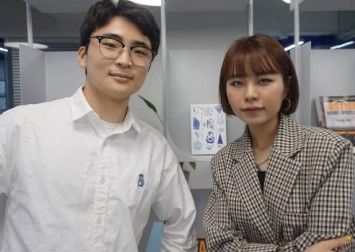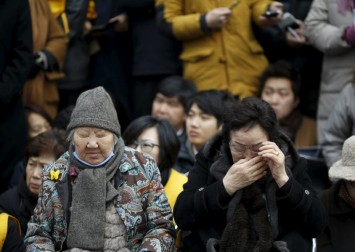South Korea's Yonsei students under fire for suing underpaid cleaners over 'noisy' protests

Students at an elite South Korean university who filed a lawsuit over "noisy" labour protests have found themselves under attack for their perceived lack of empathy for the rights of the less privileged.
In May, three students at Seoul's private Yonsei University sued the Korean Public Service and Transport Workers' Union's (KPTU) branch president at Yonsei and the team's vice-president for allegedly holding "illegal and unregistered protests that generated stress and invaded one's right to learn for over a month". The move quickly attracted backlash.
As the controversy on the institution's Sinchon campus grows, increasing numbers of people are expressing support for its workers, who are dealing with heavier workloads due to lay-offs and other unfavourable conditions, while the wealthy university is coming under fire for not taking steps to improve the situation.
The ongoing protests, which began in March after eight months of negotiations with the leading educational institution led nowhere, have demanded basic rights including a 440 won (S$0.47) rise in the hourly wage to match the national minimum wage. The workers also want access to showers during very hot weather.
"But four months of protesting during our lunchtime have got us nowhere," said Kim Hyun-Ok, a cleaner and the head of KPTU's university team.
She said she "wasn't disappointed" in the three students who filed lawsuits. "We unfortunately disturbed the students who were studying, but we also needed to raise our voices as the school didn't take care of us. We don't want to be looked on as a group that merely protests. We consider ourselves as a group that needs to be protected and provided for as we don't have the means to ourselves."
Across May and June, the three students filed one criminal and three separate civil lawsuits asking for a combined 6,386,000 won in compensation for "tuition, mental damages and psychiatry treatment sessions".
In a live television interview at the end of June, 23-year-old Lee Dong-su, one of the students, said he "couldn't hear his professor because of the noise from the protest".
"I think protesting loudly inside the school is also considered abuse towards the students. I worry that this could end up traumatising me."
Following the interview, netizens labelled the political science major as an "ungrateful student" with a "wrong sense of privilege". Lee wrote online that half his lesson was blotted out by noise from "protest chants and songs coming from the megaphones outside".
"You could even hear the noise from inside the library," he wrote, attaching a video to his post.

PHOTO: South China Morning Post via Instagram
But netizens rushed to disagree. "He's missing the real cause of the problem and taking his anger (out) on people he views as an easy mark," read one comment.
"It really shows that educational background isn't everything," read another.
Han-seul, chair of the university's student committee - which is supporting the union and its members - led a press conference on Wednesday attended by around 30 students and 15 union members as well as the media.
In addition, there were almost 3,000 signatures from students who supported the cause, while law graduates showed up to offer advice.
"Yonsei University is a famous private institution that's known for having a lot of capital, but it has rejected the requests of labourers for the past 15 years and has looked on idly even as students have solidified in the fight with the labour union," Han-seul said. "This lawsuit happened because the school didn't teach about justice."
A mission statement on the university's website says Yonsei "is dedicated to educate future leaders of our society in the spirit of Christianity" and its philosophy talks of contributing "to the prosperity of humankind".
But many are now questioning whether these kinds of guiding principles are being applied. One student told This Week In Asia the protest/lawsuit case was a "sensitive topic among students on campus".

PHOTO: Yonsei Annals
"I think it's evenly split between students who agree with the students who filed the lawsuit, the students defending the labour union, and others who are simply not interested in the matter."
Professor Na Yoon-kyeong, from the university's cultural anthropology department has included the recent protest/lawsuit case in a social justice class. "I can't help but question these students' sense of justice ," she wrote online.
While Lee, one of the suing students, estimated that workers on campus make 3-4 million won a month, Kim said the true figure was around 1.94 million won.
"The school has been telling us that they can't act alone in changing the wages and conditions of work as other institutions would complain about acting alone," Kim says. "I really don't know why a school that's considered the best in the country can't become a leader and stand for the right changes."
According to Han-seul, speaking at Wednesday's press conference, it would cost the school less than 0.1 per cent of its annual budget - one of the highest among the nation's universities - to meet the demand for an increase in its workers' pay.
The university's official budget summary showed that the main Seoul campus had a total budget of 592.2 billion won this year. The entire university had a total budget of 1.077 trillion won in tuition and other costs this year.
Yonsei University also has the third-largest financial reserve among Korean universities, at 757.4 billion won, according to data from the education ministry.
The university has declined to comment on the issue.
Progressive reforms for cleaners at many other universities have continued for over a decade, with student organisations often supporting workers and unions.
Lee Joo-hwan, a researcher at the Korea Labour and Society Institute, has called the Yonsei case "exceptional" for being such a high-profile example of opposition to the progress made.
"This is a prime example of individuals inside a community being socially fragmented and cut off from other members of the same community. In this case, the members who were cut off were the more vulnerable," Lee says. "These students who pressed charges viewed the workers as outsiders who brought them an unfavourable situation."
It surprised Lee that such a breakdown in community could happen on a university campus, of all places, but recent data can help to explain changes in attitude and behaviour.
Statistics from the Korea Institute of Public Administration show that the percentage of people who "trust in others" fell from 72.2 per cent in 2013 to 59.3 per cent last year.
Workplaces that are "strenuous and physical" are also generally associated with a lower status in society," Lee added.
South Korea has also had one of the highest rates of occupational accidents among OECD states. While numbers have been falling, there were still 855 accidents recorded in 2019, the government said.
Such social perceptions have contributed to youths vying for office jobs in major corporations and public service workplaces seen by many as more stable working environments.
Some South Koreans are already feeling nostalgic for the recent past.
"In this day and age, where indirect employment of subcontracted workers is practised widely by big institutions, we can't help but to think back to the days when students were taught to respect and co-operate with vulnerable members of the community," said Lee.
This article was first published in South China Morning Post.


No comments:
Post a Comment